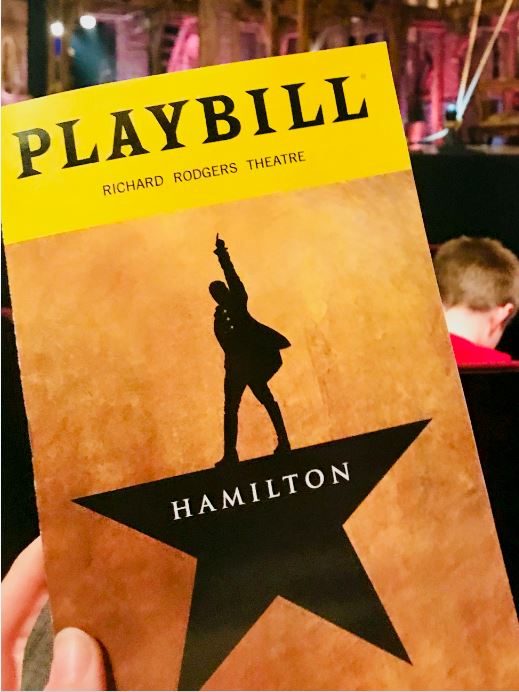ACTA in the NewsHistorical Literacy
National group backs NC REACH Act
RALEIGH — A national group focused on academic freedom and excellence is backing a North Carolina House bill that would increase courses in American history and government.
Alexander Hamilton, one of the forgotten Founding Fathers, has risen to fame since 2015 thanks to Lin Manuel-Miranda’s Hamilton. The Broadway musical is “changing the game” through its unique musical selection, diverse cast, and fascinating take on a pivotal moment in American history. People have stood in long lines and waited at their computers for hours to be in the “room where it happens.” Folks in DC waited online for nearly thirteen hours to snatch the few remaining seats at the Kennedy Center. As the musical begins a nationwide tour alongside its mainstays in New York and Chicago, Hamilton fever is here for the long run.

Classic liberals and academia alike worry about the state of our nation’s deteriorating interactions with classic texts, specifically those related to our nation’s Founding. Hamilton provides a unique opportunity to engage younger audiences with one of the most intellectually-rich periods in world history. High school teachers have seized the opportunity to engage students in an area of history that often receives glazed-over looks and the occasional snore. A quick search online displays Hamilton themes for teachers to discuss with their students in the classroom, ranging from lesson plans on The Federalist Papers to debating death and immigration issues.
Lin-Manuel Miranda drew inspiration from Ron Chernow’s biography, Alexander Hamilton, to create the quick-witted lyrics. While Miranda willingly admits some historical inaccuracies, Hamilton proves that history can not only be educational, but also, dare we say it, fun. Certainly, the crowds agree with this sentiment. The strongest songs of the show focus on the American Revolution, Hamilton’s relationship with George Washington, and Cabinet meetings (i.e., “The Battle of Yorktown,” “Right-Hand Man,” and “Cabinet Battles 1 and 2”).
However, higher education is one of the few arenas that has not been swept up by Hamilton mania. Professors and faculty should be using this recent “Founding Father adrenaline” to pack their lecture halls with eager students. This is an opportunity to plunge into details about the National Bank, the difference between the Federalists and the Democratic Republicans, and all the varying opinions of American democracy. Currently, less than 18% of American colleges and universities require a U.S. history course for all students, and only 11 of the top 25 universities require an American history survey course for their history majors. Colleges say that students are not interested in American history, but ticket sales beg to differ.
Colleges and universities are increasingly offering classes that bend to pop culture fads, including courses on Lady Gaga, The Walking Dead, and Mad Men. If a pop star and television shows are receiving lecture time, certainly colleges can answer the increased demand for American history. Classes about the Founding Fathers, the Founding documents, and other critical periods of American history should receive much more attention than fluffy pop culture courses. The “people are rioting” for Hamilton, and it is time for history departments to respond.
The Hamilton mania will fizzle, and it will be difficult to generate this type of excitement around another critical topic in higher education. While the theatre and history worlds doubted Miranda’s production at the beginning, it is hard to imagine that another musical will be able to educate the masses in such a nuanced way. It is up to colleges and universities to “not throw away their shot” and harness this excitement to stimulate students’ interest in American history.
RALEIGH — A national group focused on academic freedom and excellence is backing a North Carolina House bill that would increase courses in American history and government.
John and Abigail Adams envisioned an America with a school in every neighborhood and a well-informed citizenry that was adept in languages, literature, and music; science, history, and religion. Their vision was practical until the ages recast it, little by little. Then, sometime between Joseph McCarthy and Joan Baez, the status quo of the educational […]
On April 2, Nick Down, ACTA’s Associate Director of External Affairs, offered proponent testimony before the North Carolina House Higher Education Committee on H. 7. This legislation would require all students attending public colleges and universities within the state to take a three-credit hour course in American history prior to graduation. Read the full testimony […]
Launched in 1995, we are the only organization that works with alumni, donors, trustees, and education leaders across the United States to support liberal arts education, uphold high academic standards, safeguard the free exchange of ideas on campus, and ensure that the next generation receives an intellectually rich, high-quality college education at an affordable price.
Discover MoreSign up to receive updates on the most pressing issues facing our college campuses.